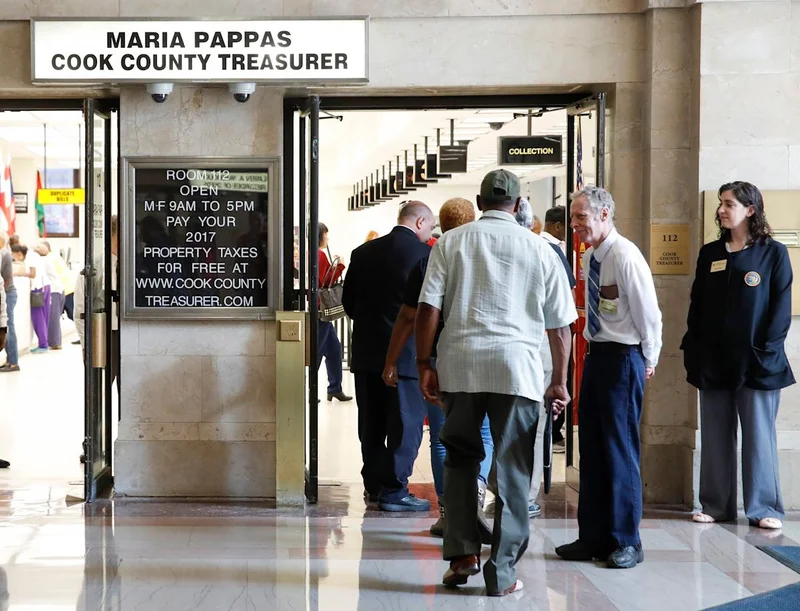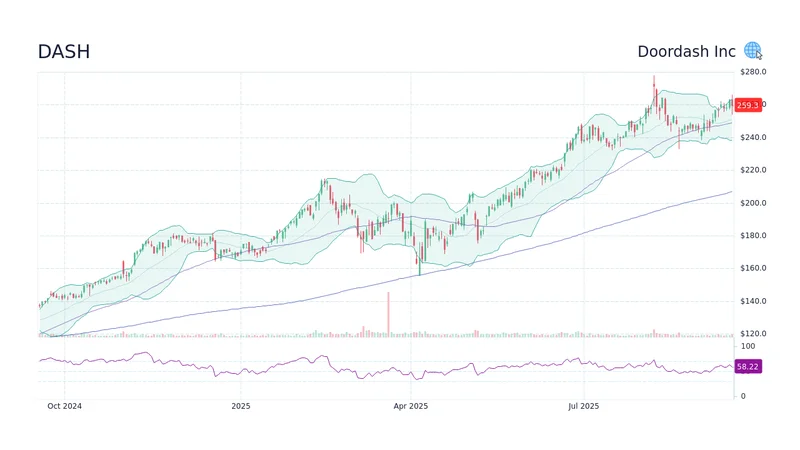Cook County Property Tax: The Delays, Due Dates, & Your Second Installment
Cook County's Perpetual Loop: Another Tax Bill Delay, Another Operational Headache
The news dropped this week with a familiar thud for anyone tracking Cook County’s fiscal rhythm: the second installment of 2024 property tax bills, those annual reminders of homeownership, are finally going out. They’ll hit mailboxes on Friday, and you’ve got until December 15th to square up. On the surface, it’s an announcement of resolution. But if you peel back that thin layer, what you find is not a solution, but a persistent operational friction, a system perpetually running behind its own shadow.
Evanston officials, relaying the message from the county, pinned the blame on "issues upgrading the county's property tax system." This isn’t a new refrain; it’s a standard corporate boilerplate for "things went sideways." The outcome? A significantly tighter window between when homeowners receive their `cook county property tax bill` and when the payment is actually `due`. For a system meant to be predictable, this kind of annual uncertainty is, frankly, a red flag. It begs the question: What exactly were these "issues," and why, year after year, does a critical infrastructure upgrade seem to translate into taxpayer inconvenience? My analysis suggests this isn't just a technical glitch; it's a symptom of a deeper, systemic lack of foresight or, perhaps, a chronic underestimation of project complexity.
The Cost of 'Issues Upgrading' Isn't Just Time
Let's talk about that "tighter than normal" window. We're looking at less than a month from mail date to due date—to be more exact, barely three weeks for most recipients, assuming prompt mail delivery. For households managing budgets down to the wire, or small businesses grappling with cash flow, this isn't a minor inconvenience; it's a forced scramble. It's like a financial institution suddenly shortening the payment period on a loan without adequate notice. The impact ripples through personal finances, forcing quick adjustments that might involve dipping into savings or, worse, incurring late fees.

And then there’s the added layer of complexity for those who need to address `cook county property tax exemption` issues. If you’re one of the homeowners missing an exemption, the path to an adjusted `cook county property tax bill` involves submitting an Exemption Certificate of Error application. The Cook County Assessor’s Office Skokie branch (located at the Skokie Courthouse, 5600 W. Old Orchard Rd.) is the place to go, but appointments are "strongly encouraged" due to anticipated long wait times. I've looked at hundreds of these administrative processes, and "strongly encouraged appointments due to expected long wait times for walk-in visits" is code. It's code for: we know this is going to be a bottleneck, and we’re trying to manage the inevitable taxpayer frustration. Imagine the scene: a line of exasperated taxpayers, forms clutched in hand, perhaps taking time off work, all because a system upgrade didn’t go as planned. It’s a tangible cost, not just an abstract delay.
This whole scenario makes me question the methodology behind these "upgrades." Was there a robust risk assessment? Were contingency plans in place for a system as critical as `cook county property tax bills`? When `cook county property tax due dates` become a moving target, it erodes public trust. It also introduces an unpredictable variable into the county's own revenue stream, however minor the immediate impact. What's the true, unquantified cost of this repeated administrative friction on the county's operational efficiency and its relationship with its tax base?
The Perpetual Loop of Operational Drift
The announcement of `cook county property tax second installment` due dates should be a routine administrative notice, not a news event. When officials have to confirm `when will cook county property tax bills be mailed` because of repeated delays, it signals a deeper, unresolved issue. The "issues upgrading" excuse, while vague, points to a fundamental flaw in execution or planning. It suggests a lack of robust project management, a failure to anticipate common pitfalls in large-scale system transitions. Until the county provides more granular data on why these upgrades consistently fall short of their timelines, and what specific measures are being implemented to prevent future delays, taxpayers are left to manage the fallout of what feels like an annual operational drift. This isn't just about a late bill; it's about the predictable cost of unpredictable governance.
Related Articles
LendingTree's CEO is Dead: Let's Talk About the Real Fallout
The Visionary is Dead. The Press Release Was Ready. One minute, you’re a 55-year-old tech founder ri...
DoorDash Stock Tanks: Earnings Miss and What We Know
Alright, so DoorDash stock tanks 14% because they missed earnings and are suddenly gonna be "investi...
US Overtakes China in Africa Investment: What the Numbers Actually Say
The Quiet Reversal: Decoding the Data on US vs. China Investment in Africa For years, the narrative...
Robinhood's Next Chapter: Decoding the 2025 Vision and What It Means for the Future of Investing
It’s easy to get lost in the numbers, and with Robinhood in 2025, the numbers are absolutely stagger...
John Malkovich Cast as President Snow: An Analysis of the Casting and Its Implications
The announcement landed with the precision of a well-funded marketing campaign. The Hunger Games, a...
Rigetti Computing (RGTI) Secures $5.7M Quantum Order: Dissecting the Bull Case After its 9.6% Jump
Decoding Rigetti's Quantum Leap: Is a $5.7M Sale Worth a 25% Stock Pop? The news, when it hit the wi...





